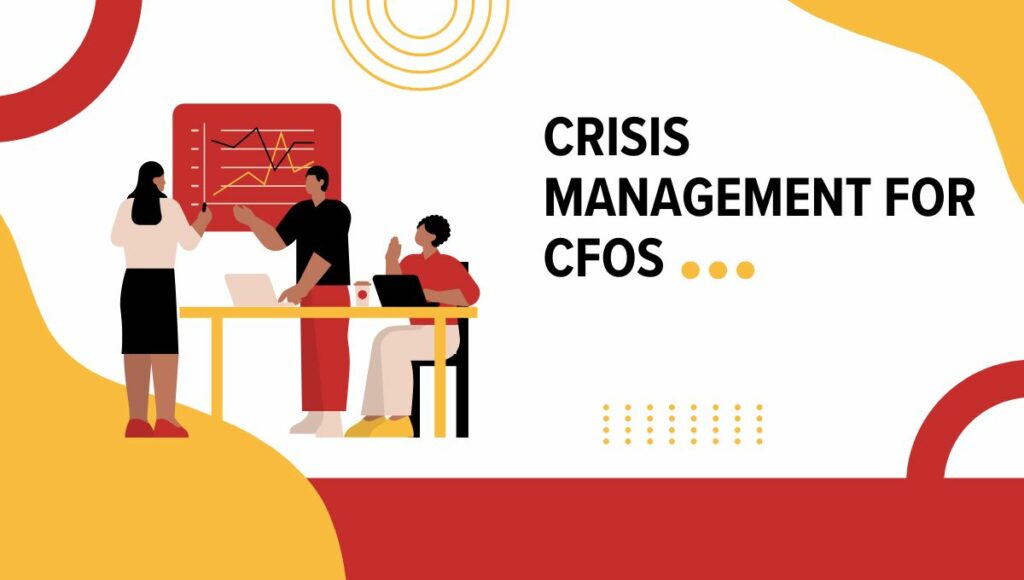Going public with an IPO (Initial Public Offering) is a significant milestone for any organisation. Similarly, for the company’s CFOs, it is equally challenging as it requires more than their existing financial knowledge. Going through an IPO means they need to manage regulatory compliance and prepare for any market volatility and any operational hurdles that may arise. Therefore, effective crisis management becomes a cornerstone of their job role.
With the right crisis management strategies, they implement frameworks that protect the company’s interests and ensure a smooth IPO. So, read on to learn more about the importance of crisis management in IPO, key plans, and more.
Why is Crisis Management Vital for CFOs During IPOs?
When a company goes public, each financial or operational move comes under public scrutiny. Similarly, during and before the IPO, the firm remains under intense analysis as experts dissect every aspect of the business and review its finances to present a detailed case study to the investors.
During this process, certain situations may develop that require immediate attention. This is where crisis management skills come into play. They help CFOs be very decisive in their actions, ensuring stability and establishing trust during volatile periods.
With effective crisis management strategies, CFOs can manage such risks and prevent disruptions that will harm the company’s reputation. By being ready for the challenges in advance, CFOs are well-positioned to handle these IPO complexities.
Key Crisis Management Strategies for CFOs
Several core strategies can help CFOs navigate crises effectively, ensuring they are ready to tackle IPO challenges. Here are some of the major ones –
- Risk Identification and Analysis
A proactive approach starts with risk assessment and mitigation. Therefore, CFOs should consider factors that include impacts brought about by economic factors, legislation, and the market. Early identification of the problems assists them in having backup plans, which are essential in any financial risk management process.
- Transparent Communication
Organisational stakeholders found that clear and consistent communication is important during any crisis. That way, all the investors, other parties on the board of directors, and regular employees are well-informed, maintaining their trust and managing their expectations. CFOs prioritising open communication are better positioned to manage what is going out to the various stakeholders, keep them calm, and reduce the incidence of panic.
- Stress Testing Financial Models
Market conditions or additional unforeseen expenses can affect an IPO’s performance. By stress testing financial models, CFOs can be ready for various situations in financial risk management. This tactic has the advantage of allowing financial strategies to be adapted rapidly, which can protect the company at any unfavourable time.
- Compliance and Regulatory Readiness
It is imperative to stay informed on regulatory requirements or engage the legal department to ensure that you are meeting the standards because missing these could cost you a lot of time and money. This also helps the CFOs stay prepared and maintain a corporate culture that is IPO-ready and comfortable with any regulatory challenges that may arise.
- Establishing a Crisis Management Team
When a crisis team is assembled, it reaps the positive effect of efficiency and orderliness. In turn, clicking roles and responsibilities will facilitate efficient team mobilisation during the crisis, thus preventing interruptions to the IPO process.
Common Challenges CFOs Face During IPOs
CFOs face unique challenges when preparing a company for an IPO. Some common CFO challenges are:
- Market Volatility
Fluctuations in the market can lead to unpredictable stock prices. CFOs must be ready to adjust techniques swiftly in response to these changes.
- Increased Scrutiny
Public companies face greater transparency demands, which may bring new pressures on financial stability and performance. Effective financial risk management is vital to navigate this heightened scrutiny.
- Investor Expectations
Another challenge CFOs face is balancing realistic financial planning with shareholder demands. Strategically managing these expectations ensures long-term trust and sustainable growth.
How Crisis Management Skills Empower CFOs during IPOs?
Cultivating good crisis management skills enables the CFOs to be ready for the unique issues that may arise during and after the IPO and for future corporate leadership. Even though the process is complex and tedious at times, it is vital to future-proof the organisation.
Experience is essential for effective crisis management, but with the right CFO course, it is possible to get ahead. The ISB CFO Program from Imarticus Learning is helpful for those who seek to fine-tune their crisis management tactics and those who need guidance on proactively addressing any future IPO-related contingencies. This comprehensive training helps CFOs be on their feet, maintaining the company’s financial and operational stability intact even in times of crisis.
Conclusion
IPOs can be challenging processes, and one critical area that CFOs must navigate is crisis management. They can help minimise risks, establish stability, and give confidence to investors. A detailed focus on financial risk management and adopting sound coping strategies is crucial if there are obstacles to organisational success. Working through these skills, CFOs can guide their organisations through IPOs and beyond toward stability and solidity in the fast-evolving financial environment.

